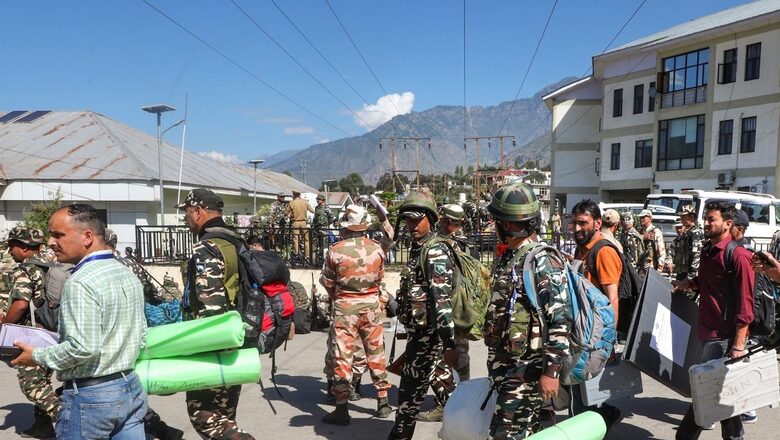
views
Hafiz Mohammad Sikander Malik campaigns in the lanes of Bandipora with a Global Positioning System (GPS) tracker attached to his ankle. It was fitted on him after a court order. He is being investigated by the National Investigation Agency (NIA).
Malik, a former district president of the banned Jamaat-e-Islami (JeI), says he decided to contest the J&K assembly election on being impressed by the “free and fair” Lok Sabha election in the state.
From Baramullah, local MP Sheikh Abdul Rashid, popularly known as Engineer Rashid, has transformed the Valley’s politics. Accused of terror funding, Rashid is out on interim bail till October 2. His Awami Ittehad Party (AIP) fielded 34 candidates as Independents and formed a “strategic alliance” with the Jamaat-e-Islami.
Both Malik and Rashid are hard anti-India Islamists who their opponents ironically see as Delhi’s men in Kashmir, out to divide votes and disrupt the politics of family-run legacy parties like the National Conference and the PDP, which ruled J&K to doom till Article 370 was lifted in 2019.
The insinuations are not improbable. Although technically possible, it is not easy for those in jail on charges of separatism or terror to fight, leave aside win, major elections like assembly or Lok Sabha, without the buy-in of the state and security apparatus. Kashmir, especially, is too sensitive for the Centre to allow random political misadventures.
So, why has the Narendra Modi-led BJP government chosen to look the other way?
Or why has the I&B ministry stalled for now Kangana Ranaut’s upcoming movie Emergency while clearing for Punjab release the Pakistani film, The Legend of Maula Jatt, which has actors who openly endorse terrorist Hafiz Saeed or utter anti-India statements?
Is there a Kashmir election play somewhere? One can only guess.
Or take Maharashtra, for instance, another state which is headed for elections this year. In the babel of constantly shifting political alliances enters a massive controversy over Ramgiri Maharaj’s remarks against Prophet Mohammed in August and BJP leader Nitesh Rane’s threat about a month ago against Muslims calling for violence against the seer.
Usually, mobs respond combatively and immediately. But almost a month later, AIMIM, a party with some pesky political presence in Maharashtra and the ability to swing a vital slice of Muslim votes, organises a high-visibility, high-publicity rally, storming into Mumbai in bikes and cars shouting provocative slogans.
None of the other so-called ‘secular’ parties who solicit Muslim votes — Congress, NCP or Uddhav Sena — joined the rally. They clearly were uncomfortable with the polarisation and the spectre of Hindu consolidation at the sight of this brazen Islamic assertion.
The question is, who gains?
AIMIM certainly hopes to corner a part of the hardline Muslim vote. Its ideological opposite pole — the BJP-Shiv Sena Eknath Shinde alliance — gains from the Hindu revulsion to the event and the ‘sar tann se juda’ slogans.
After all, politics is the art of the amoral, the game of looking ideologically immaculate while stirring the pot of ideals with muck.
The results of the elections may be unpredictable but finite, whereas the possibilities of manoeuvre are visible but infinite.
Abhijit Majumder is a senior journalist. Views expressed in the above piece are personal and solely those of the author. They do not necessarily reflect News18’s views.




















Comments
0 comment